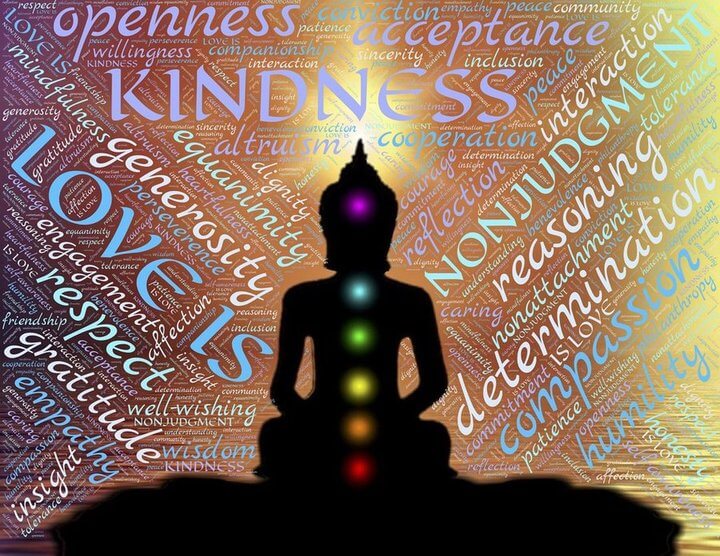Hey there! At some point, we’ve all been at the mercy of our emotions, feeling like passengers in our own lives. But what if you could take the wheel? Imagine navigating life’s ups and downs with a sense of inner peace and confidence. That’s where learning how to master your emotions comes in.
But first, what are emotions? In essence, they are our responses to external and internal stimuli, and a thought, an event, a person, or a memory can trigger them. They play a significant role in our lives, influencing our thoughts, behaviors, and well-being.
Now, emotional self-mastery isn’t about suppressing or ignoring your feelings. It’s about understanding, managing, and using your emotions to your advantage.
Mastering your emotions is key to personal empowerment, and it’s a skill that you can learn. It enables you to lead a life that’s not reactive to the world around you, but reflective of your values and aspirations.
Imagine responding to stress with calmness, facing fears with bravery.
So, in this blog post, we’ll explore techniques to master your emotions, and pave the path to an empowered life.
Let’s get into it.
Related article: Embrace Your Emotions: The Key to a More Empowered You
Self-Awareness and Emotional Control
Mastering your emotions starts with self-awareness. This means taking the time to observe and understand your emotions. You begin by tuning into your inner world, recognizing how you feel, and understanding why you feel that way.
Emotional self-awareness is the ability to recognize your emotions, their triggers, and the impact they have on your mind and body. Knowing this gives you the ability to respond with confidence and self-control. It empowers you to navigate life’s challenges with grace and resilience.
But how do you develop this self-awareness? Start by paying closer attention to your feelings throughout the day.
Reflect on how your body reacts to different emotions. Does anxiety quicken your heartbeat? Does happiness make you more talkative?
When you tune into your thoughts, feelings, and reactions, you gain valuable insights into what makes you tick.
It allows you to recognize patterns in your behavior.
This process of observation and reflection is crucial. It allows you to take control of your emotions, instead of letting them control you. Plus, with self-awareness, you respond to situations in a way that aligns with your values and goals.
Another benefit of emotional self-awareness is that it can improve your relationships. When you can understand and regulate your emotions, you can also empathize with the emotions of those around you. This leads to better communication and deeper connections with others.
Additionally, being able to express your emotions in a clear and healthy way helps others understand you better and create a more positive environment.
This deeper level of awareness empowers you to respond to situations in a more intentional and effective way.
Remember that this isn’t about judging yourself – it’s about getting to know you better. Your emotions are part of you, but they don’t have to define or control you.
By cultivating this self-awareness, you become the master of your emotions. You’ll be amazed at the clarity and wisdom that emerge when you become present to your inner world.
Related article: The Power of Self-Awareness in Managing Your Emotions: A Step-by-Step Guide

5 Simple Techniques To Master Your Emotions
Mastering your emotions is like mastering any skill—it takes time, practice, dedication, and a will to learn.
Here are five simple steps to help you manage your emotions and navigate your inner world:
1. Self-awareness
Identify your current emotion. Whether you’re feeling anxious, excited, or sad, acknowledging how you feel is your first step. Then, understand why you feel that way. What triggered it? This means looking within yourself to find what is making you upset.
Take note of situations, people, or environments that tend to elicit emotional responses in you. Recognize any unhelpful reactions. This step is crucial for gaining insight into your emotional patterns.
Moreover, try to develop emotional flexibility by recognizing that your emotions are transient. Realize that you feel and experience emotions, you are not your emotions. Allow yourself to express your feelings in a healthy way, knowing that they will eventually pass.
2. Find a way to calm yourself. Pause, accept and reflect
When faced with an emotionally charged situation, pause before responding or taking action. Use this moment to accept your emotions. Acceptance isn’t about giving up, getting lazy, or learning to live with anger or fear. It’s about being present and aware. By not battling against what’s happening, you ease the struggle and move forward.
Take a few minutes and tune into your thoughts and feelings. Think about where your actions might lead. Ask yourself, “What outcome am I aiming for?” If you’re aiming for a positive outcome, make some positive moves.
Ask clarifying questions. Try not to jump to conclusions about why people behave the way they do. Instead, ask them to clarify what they mean or what they are trying to say. This can help you avoid getting angry over a misunderstanding, for example.
Also, practice breathing exercises to calm your mind and body. According to this article by Healthline:
Conscious breathing generally describes the act of developing a soft awareness of your breath as it moves in and out of your body. This practice can help you achieve a state of calm and presence so you can engage more deeply with life.
Engaging in conscious breathing can signal your body to relax, promoting a shift from fight-or-flight to a calmer state. Set the intention to find peace and clarity in the moment, and take slow, deep breaths. Inhale positivity, exhale negativity.

3. Challenge negative thoughts
When facing challenges, it’s common to encounter negative and disempowering thoughts that can drag you down. Thus, it’s important to recognize that these are often distorted and not based on reality. Challenge them by focusing on your wins. Replace them with more accurate and balanced thoughts.
Practicing empathy can also be a great tool in challenging negative thoughts. Open your mind to a different perspective. Put yourself in other people’s shoes. Try to understand the situation from the other person’s point of view. You’ll gain a broader understanding of the circumstances.
This can help you shift your emotions and be more compassionate and patient. It will also help you see beyond your own biases and assumptions, offering a more balanced view.
Additionally, by empathizing with others, you’ll respond with compassion, rather than anger or frustration.
4. Choose how you want to respond and take action
Once you know what triggers your negative emotions, make a plan. Prepare in advance. How would you like to respond next time? How do you want to feel? The more you practice this, the better you’ll get at it.
Your thoughts and emotions have a huge impact on what you say and do. Empowering and positive thoughts lead to actions that empower you. So opt for actions that align with the desired outcome you’re striving for. Keep in mind that your reaction lies entirely within your control.
5. Cultivate gratitude
Practicing gratitude is a great tool to manage your emotions. It shifts your focus from negative thoughts and emotions to positive ones.
Plus, studies have shown that regularly practicing gratitude can improve your well-being. So take time every day to reflect on what you’re grateful for. Express gratitude and appreciate your blessings. Write it down, say it out loud, or simply think about it.
This exercise helps you create a more positive outlook and increases emotional resilience. It also serves as a reminder that you have many good things in your life, even when facing difficulties. So do your best to be in a state of appreciation throughout your day.
To master your emotions, you need to know and accept that you can control them. Not by suppressing, but by understanding. By listening to your heart and practicing self-awareness. And by taking deliberate steps to grow and live a happier life.
Related article: 11 Emotional Stress Management Techniques You Can Implement Today

Empowering Your Life Through Emotional Mastery
Emotional mastery is not just about controlling your immediate reactions. It’s about understanding and harmonizing your inner world to lead a life filled with joy, gratitude, and fulfillment.
Benefits of Mastering Your Emotions
When you master your emotions, you significantly improve your well-being. You are likely to experience less anxiety and stress, enjoy better relationships, and have a more optimistic outlook on life.
One of the most significant advantages is the positive impact it has on your mental health, with more clarity and peace of mind. Imagine waking up each day feeling energized and grateful, ready to have a successful day.
For instance, let’s say you encounter a stressful situation at work. Rather than getting overwhelmed by negative emotions, you calmly assess the situation. Then, respond with confidence and assertiveness. By keeping a positive attitude, you may also look for a path that benefits all involved.
Other great benefits include:
- Improved decision-making and problem-solving skills.
Emotional mastery enables you to approach challenges with a calm and clear mindset. This leads to more creative and effective problem-solving strategies and rational decisions. - Greater adaptability.
Life is unpredictable, and you constantly face new challenges and changes. By mastering your emotions, you become more adaptable to change and better prepared to handle the unexpected. You navigate your life with calmness and flexibility, adjusting to any circumstance that comes your way. - Increased self-confidence.
With deeper self-awareness, you develop a better understanding and acceptance of your emotions. The result is self-confidence, trust in your abilities, and a more positive self-image.
Master Your Emotions and Transform Your Life
Mastering your emotions acts as a catalyst for personal transformation. It has the power to change every aspect of your life for the better.
Picture yourself confidently pursuing your goals and dreams, unburdened by self-doubt or fear.
Fear and self-doubt will still pop up, frustration too, and all kinds of resistance will keep coming at you. But hey, now you’re free to pick empowering emotions.
With the help of your willpower and resilience, you can tackle any challenge in your path. You can overcome obstacles and achieve success in both your personal and professional life.

Takeaway
Emotional mastery is not just about managing your feelings. It’s about embracing personal growth and empowerment on a profound level. This is not a static destination, but a dynamic, ongoing process. It is the commitment to this process that marks a life well-lived.
It also requires practice and patience. It involves commitment, self-awareness, and willingness to constantly change and improve.
It’s about transforming your life.
But the rewards are worth the effort. You’ll find yourself embracing life with a sense of purpose and passion.
As you learn to use your emotions in an empowering way, you begin to see yourself and your capabilities in a new light. You’ll become more introspective, gaining deeper insights into your thoughts, emotions, and behaviors.
For example, if you’ve struggled with feelings of unworthiness, you now see these emotions are just limiting beliefs. They are false narratives that hold you back from reaching your full potential.
So keep practicing self-awareness, challenging negative thoughts, and choosing positive actions. Cultivate gratitude and continue to expand your emotional intelligence.
You can master your emotions and elevate your vibrational energy. You can understand and navigate your psychological responses with wisdom. And, you can learn to align yourself with positivity and attract good things into your life.
In conclusion, mastering your emotions is a journey of self-discovery and empowerment. By learning this great skill, you’re investing in your personal growth and enhancing the quality of your life.


0 Comments